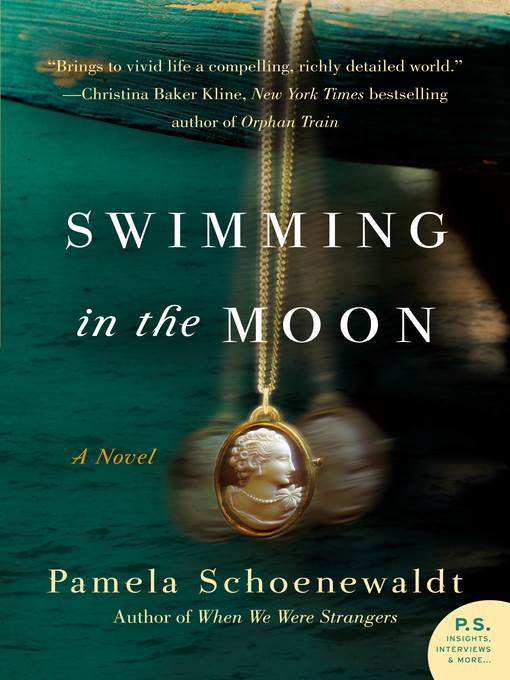
Swimming in the Moon
A Novel
کتاب های مرتبط
- اطلاعات
- نقد و بررسی
- دیدگاه کاربران
نقد و بررسی

September 2, 2013
Lucia D'Angelo and her mother, Teresa, work as servants at a quiet seaside villa in Naples until Teresa's eruptive temper costs them their jobs and forces them to flee to America in Schoenewaldt's touching second novel (When We Were Strangers). Arriving in Cleveland in 1904, Lucia and her mother struggle to get by in their new lives, living in close quarters with other immigrants, working long hours in poor conditions for little pay. While Lucia quickly picks up English and begins to excel in school, her mother continues acting out at her factory job, threatening their livelihood and Lucia's dreams of attending college. Evoking the challenges new immigrants faced in early 20th century America, Schoenewaldt illustrates Lucia's poignant struggle between her ambitions and her loyalty to her mother with striking verisimilitude. Once news of New York's Triangle Shirtwaist Factory fire reaches Cleveland, Lucia realizes her own neighbors deserve better treatment and helps lead a strike against the city's factory owners. A rich cast of characters and a timeless story of family strife bring life to this thoughtful and emotional historical fiction. Agent: Courtney Miller-Callihan, Sanford J. Greenburger Associates.

August 1, 2013
A mother and daughter clash as they try to make a new life in 1900s America. It is hard to say what this novel is trying to be: A coming-of-age story? A coming-to-America tale? A chant of justice, or a song of madness? In 1904 Naples, Italy, narrator Lucia Esposito is 14, the product of a rape that also left her mother, Teresa, sullen and prone to fits of anger. They live and work together as maids for a countess who enjoys Lucia's reading and Teresa's singing voice. But when the countess' stock villain of a husband tries to correct Teresa's difficult behavior with torturous "methods," she and Lucia flee to America and take up residence in Cleveland. Teresa gets a job dipping chocolates to subsidize Lucia's dream of graduating from high school, but like many immigrants of the time, they barely scrape by. And though Teresa's work conditions are better than the many garment workers in the city, her boss's advances incite her rage to an unsustainable degree. She quits and joins a touring vaudeville act as the Naples Nightingale, hoping it will make her happier, despite the less-than-promising road life. Lucia graduates high school and enjoys a brief stint in college, but her mother's predictable mental health collapse forces her to return to Cleveland to be her caretaker. The most promising thread of the novel picks up here, as Lucia becomes an advocate for the ladies garment worker union and helps organize the 1911 general strike. Doing so while caring for a catatonic mother has its disadvantages, though, and Lucia struggles against this role with unfortunate results. Her frustrations are understandable, but Schoenewaldt's brush strokes are too broad to paint Lucia in a nuanced or particularly sympathetic light. Exposition in general is clunky, and opportunities for describing the era in greater detail are frequently glossed over. A gift of a pineapple from Lucia's love interest goes by with hardly a mention. Whether Lucia had ever seen one before, we'll never know. Most successful as a primer on turn-of-the-century work conditions and union efforts.
COPYRIGHT(2013) Kirkus Reviews, ALL RIGHTS RESERVED.

April 1, 2013
Schoenewaldt's first novel, When We Were Strangers, was a Discover Great New Writers pick. Her second, also a tale of Italian immigration, features Lucia D'Angelo and her mother, Teresa. Former servants of a Neapolitan count, they end up in Cleveland in the early 1900s, just as union activity is stirring. With a 50,000-copy first printing.
Copyright 2013 Library Journal, LLC Used with permission.

























دیدگاه کاربران